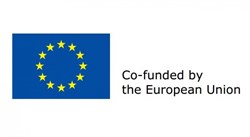

It is beyond any doubt that free press and freedom of speech are crucial prerequisites of democracies. These rights should not be taken for granted, but the freedom of press should be evaluated continuously. As the recent developments in the Hungary demonstrate, the freedom of speech does not necessarily ensure freedom of the press, which also depends inter alia does on the structure, the financing of media, and on a credo of journalism. The recent conference of Republikon Institute investigated the current media landscape in Hungary. Our aim was to start a discussion on the media consumption patterns, the ownership structure in the media and the distorting effect of advertising by the state and state-owned companies. Furthermore, a second panel was also planned for journalists to share and discuss their experiences about political pressure on the press.
In Hungary, the populist Orbán regime distorts the media landscape by channeling state funds to government-friendly media outlets. While the government claims that the press is free, the public broadcasters are echoing directly the government’s propaganda and the oligarchs of the government shut down Népszabadság in 2016, the country’s independent and biggest daily newspaper. Also, the oligarchs bought all regional daily print newspapers in 2017. Thus there is free speech in Hungary, however access to independent journalism is restricted. One strategy to overcome these difficulties is to rely on the support of readers and crowdfunding campaigns. On the other hand, fake news is distorting the free press as well. In contemporary societies many people spend much of their time as consumers and also as producers of media content. However, users and readers are not always aware of their media usage and the reliability of sources. The refugee crisis proved, how easily people could be manipulated by biased media outlets. Young people are much more exposed to this, since social media is their primary source of information, where much unverified information circulates. The youth from deprived regions are in addition much more vulnerable due to the lack of proper literacy socialization. Moreover, anti- democratic and populist political forces have a stronger presence in social media. Another crucial point is the pressure on independent and public media by the government.
Thus, we want to tackle the problem of poor media literacy, which is a hotbed of exposure to radicalisation, political manipulation and the lack of self- representation of marginalized groups in the media. Our project, wishes to assess the state of independent journalism in Hungary and promote the idea of conscious media consumption. We also aim to assess the best to practices of financing independent journalism and raising media literacy. Also, as part of the project experts will discuss these issues with young Hungarians.
The whole publication is available HERE.

Co-founded by the Europen Union